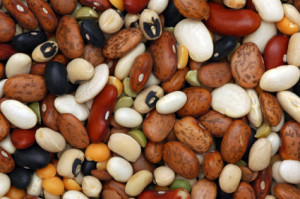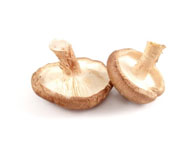The key to a healthy diet is making smart choices when it comes to your nutrition. Including foods from every food group allows your body to get every nutrient it needs to keep you healthy and energized. In order to get the maximum amount of nutrients from your foods, make sure you choose fruits and vegetables that are in season. Fruits and vegetables that are in season are at the peak of their freshness and flavor.
The month of April comes with a little sunshine and a lot of fruits and vegetable to choose from:
Arugula
Arugula like the rest of its family members (kale, cabbage, cauliflower) is a very versatile vegetable. It is low in calories, provides your body with a lot of phytochemicals as well as folic acid and a variety of vitamins like vitamin A, K and C. The great thing about arugula is that you can prepare it however you want. It’s delicious in fresh salad or a garnish for your favorite dish. You can even include it in your family’s sandwiches for an extra dose of freshness and nutrients.

Beans
Beans are one of April’s seasonal legumes are a great source of vitamins, minerals and fiber. Consumption of beans has been shown to lower cholesterol and blood pressure and also play an important role in the prevention of coronary diseases and diabetes. Beans are also an important source of protein and can be consumed in many ways: from delicious bean stews to pasta with beans or baked beans.
Asparagus
Asparagus is a vegetable that is very low in calories: 100g of fresh spears has only 20 calories. Asparagus is a good source of anti-oxidants, carotenes, folate and is also rich in B-complex vitamins that benefit heart health, and the prevention of other diseases. Take advantage of the warmer weather and spend some time outside with friends and family enjoying some grilled asparagus with a drizzle of olive oil, a squeeze of lemon juice and some fresh feta cheese.

Mushrooms
Mushrooms are rich in dietary fiber and lean protein, but low in calories and carbohydrates. Mushrooms contain a powerful antioxidant, ergothioneine, which is very effective in protecting from free radicals as well as boosting your immunity. They contain important levels of vitamins A, B-complex and C. Minerals found in mushrooms include calcium, iron, potassium, copper, and selenium. Mushrooms can be prepared in many different ways from delicate cream soups to delicious stuffed mushrooms or they can be used as a stuffing for your favorite recipes.

Strawberries
Fresh strawberries are low in calories, but high in nutrients, minerals and vitamins. They are an excellent source of vitamin C, B complex vitamins, vitamin A and vitamin E. They contain a good amount of minerals like potassium, manganese, fluorine, copper, iron and iodine. When thinking of strawberries, we automatically think delicious desserts that might contain too many calories that could affect your waist line. In order to enjoy all the benefits of strawberries, include them in low fat desserts like yogurt strawberry parfait, add them to your favorite smoothie, or even in your favorite salad for an extra dose of freshness and texture.
Oranges
Oranges have many nutritional benefits. First of all, oranges are a great source of dietary fiber and are very low in calories. Being from the citrus family, oranges are rich in vitamin C and also contain a variety of phytochemicals that have a positive effect on human health. You can incorporate oranges in practically everything from delicious smoothies to Orient infused fresh salads and even sweet and savory dressings you can drizzle over vegetables or meat.
Live life and love it. Eat well.

